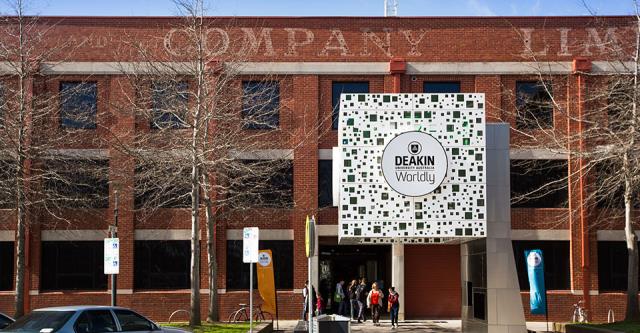Deakin University has committed to working with students to make it easier to report sexual harassment, after national survey revealed startling results about sexual harm in the community.
The National Student Safety Survey, which asked university students’ for their perceptions off safety and experiences relating to sexual harm, released its data last week.
The survey revealed almost one in eight Deakin University students who participated had experienced some form of sexual harassment in a university setting during their studies.
It also showed 4.5 per cent had experience sexual harassment at university in the past year, while 3.7 per cent had been sexually assaulted in a university setting.
The figures were all below the national average.
Deakin University deputy vice-chancellor Professor Liz Johnson said the survey data also revealed the need to increase student awareness about access to support services and where to go to report incidents.
“The national and Deakin results highlight that around half of students knew nothing or very little about the formal reporting process for sexual harassment or sexual assault,” Professor Johnson said.
“In addition, only 6.7 per cent of students who were sexually harassed went on to make a formal complaint to the university.
“The data also highlights that around half of students know little about where to seek support or assistance for harassment or sexual assault. Only 17.7 per cent of students who were sexually harassed sought support or assistance from Deakin.
“In response, we have already made this information more prominent online and on-campus, and we will work with our students to improve communication and understanding.
“We take a proactive approach to preventing sexual harm. We have a strong foundation of policies, procedures and programs and are committed to working towards improving how we respond to and support those in our university community who have been affected.”
Deakin University vice-chancellor Professor Iain Martin welcomed the release of the survey’s data and said in response, Deakin would continue strengthening its prevention, safety and support programs.
“While the data reflects that, for the vast majority of our students, Deakin is a safe place, even one instance of sexual harm is too many,” he said.
“Deakin has worked with our staff and students for many years to build a strong culture of safety, mutual respect and inclusion but there is always more to do.
“Together, we must continue to confront the scourge of sexual harm both at universities and across our broader communities. This behaviour has no place at Deakin, and with insights from the NSSS, we have strengthened our Respect and Sexual Harm programs to continue supporting our students and changing attitudes and behaviours.”









